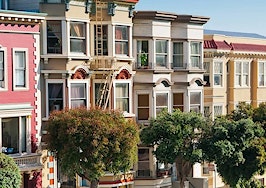- Recently approved Proposition A and recent call for amendment paint San Francisco as a city that's very focused on affordable housing.
- Building multifamily will become more costly moving forward in the Bay Area.
- Both San Francisco and Oakland are looking to increase requirements of residential developers.
San Francisco’s mayor and board of supervisors are pursuing a charter amendment for the next November’s ballot that would require developers to include more below market-rate housing in new residential developments.
This pursuit by Mayor Ed Lee comes after voters passed San Francisco’s largest ever housing bond, Proposition A, in early November. The proposition authorizes a $310 million housing bond, which will be used to construct and preserve low- and middle-income homes.
Under the city’s current inclusionary requirements 12 percent of a project’s units must be below market rate, so long as the project features 10 or more units. Developers can also choose to pay a fee or build additional below market-rate units at another location.
The mayor and board of supervisors believe the 12 percent requirement is not enough and that the envelope must be pushed when it comes to developer requirements. The city has an initial goal that would require 33 percent of all new homes to be below market rate.
San Francisco is not the only Bay Area city with its eyes on increasing developer requirements.
In a recent study, the city of Oakland unveiled the maximum fees it could charge homebuilders and developers for housing projects.
For single-family, detached homes the maximum fees range from $64,009 to $110,905, depending on location within the city. These totals include affordable housing, transit and capital improvement-related fees.
The city did acknowledge that “the maximum legal fee amount is typically higher than the amount that can feasibly be supported by new development.” The actual rates will be determined following public feedback, discussions with developers and advocates, and city council action.








